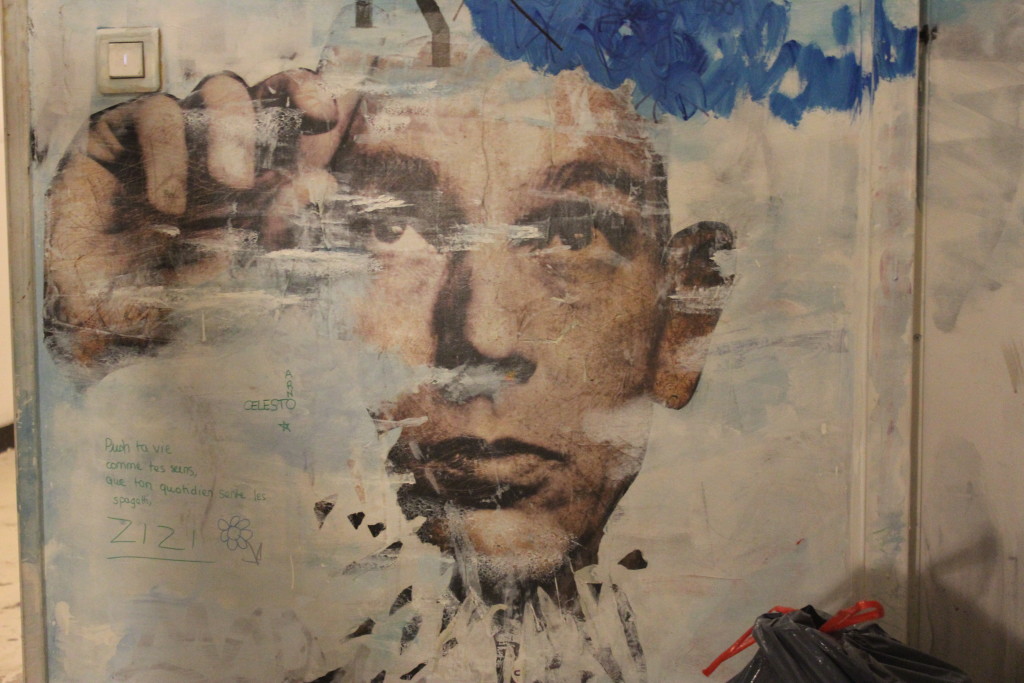Poets and peddlers
Heroes proceed in the dark
GEORGE SEFERIS
How much poetry was written about the Nazis?
The survivors of the holocaust
Might not have survived
If they had given themselves up to poetry
And if they had trusted
The treacherous poets
And their even more treacherous craft ?
Probably, the gathering in concentration camps would have been staged,
(Just imagine Auschwitz in parentheses),
The cries would have been measured by metre.
The horror would have been carved somewhat more discretely
In keeping with the aesthetics of the writer,
And lovely and rare words
Would wash away the blood of the suffering
And all that would remain for us
Would be words and figures of speech.
Let poetry remain the intertext.
First we have to talk of the art of life.
History was blamed for the past, poetry the present.
The future will come from elsewhere
with verses not yet written.
When you say that you want to change the world
When you say that you want to change the world.
You have to suckle the sea from the start
to choose its every drop in the mouth
to spit out the old water,
The putrid blood,
To partake of the dish of god and the devil
Forgetting the age-old hunger.
And to safeguard the mind with carbines
But, above all,
To hold your heart in your hand as a kerchief
To wave to the sun everyday
And in name to be consonant with the ‘moon’
– war will only be the beginning between us
and life the end.
This land needs clean air
Love
And well-wrought hands.
On love and war
Our heartbeats will explode like crackers
My bones will bear your body
In my womb a child will be born
fetus in fetu
And the dog will unearth us from the rocks
Heard ever deeper, for centuries now
Is Persephone’s laughter
T e hum of the universe
The plaintive strumming of man
Our tiny seismic mankind.
And,
At such times what am I to say of love?
That coffin in which we all fit
It lures you into secret sleep
Takes you by the hand, leads you
To sheer cliff s, arid landscapes
For you to water from your body’s fluid
your longing is blind, and night sows
by deceit another love for you to reap.
Where might this blind longing fit?
And if somewhere, you love me, but who knows it?
Life is a raft in the infinite
And if you’re a corsair, it will bear you.
Prior to the rally
He was sitting on the stone step.
One of those in Omonia Square.
People all around and brand new faces
Voices of men and women
Loudspeakers, microphones, flags and ideas alternately
While he, for years now sitting on the stone step
In the same spot
Was counting out his worry beads
And the hours that were slow in coming
For the days that were to come.
– About these he was quite certain as,
every time he counted them
he came up with the same number,
equal,
to the days that saw him there on the step,
amidst the loudspeakers, microphones, flags and ideas.
Getting older, you learn to count in reverse:
from the end to the beginning.
I watched him sitting on the step,
There, always in the same spot, his back against
the tier above
his head lowered
looking
now at the worry beads,
now at the flags,
now at the new faces
and now
at his endless ideals.
The hedgehog’s dilemma
The hedgehog’s dilemma (or porcupine dilemma)
Refers to the inevitable friction
Caused by human contact.
We can’t love each other without pricking each other
And hurting.
Hence, not even hurt is possible without love.
We participate in this experiment of nature
Sometimes less victorious and sometimes less vanquished
But pain doesn’t await the victor
And the one who loves more
Is more hesitant in love
and retracts at the point of impact
begging that his defeat be declared
so that at last,
he may be free to hurt.
If I shot the moon
Thousand little balls of baby moons
Would fall from the sky
Besmearing
Our heads
With honey made of stars and dust
If I shot the moon
Persefone would be released
And spent her free days maybe in Europe
Searching for a job
An airbnb
And a real love
If I shot the moon
A new glossary would be made
With no words for poets in the night
With no tasteless literary schemes
And spelling rules
For lovers’ vow(el)s
If I shot the moon
No one would ever ask again what beauty is
from The twin paradox: a poetic transcription to Yiorgos Cheimonas, Melani Publications, 2018.

Eleni Tzatzimaki was born in 1986, in Athens, Greece. She is a professional musician (jazz vocalist) and a graduate of the Department of Modern Greek Literature of the School of Philosophy of the University of Athens. She holds a Master’s degree in Modern Greek Literature from the Institute of Contemporary Greek Studies of the University of Paris-Sorbonne (Sorbonne 4). In 2009 her first poetry collection entitled “I mageia tis anwsis” (The Magic of Upthrust”) was nominated for the “Diavazo”magazine Literature Awards.Her poems have been translated into English and French. “Twin Paradox-a poetic transcription to Yiorgos Cheimonas” is her fourth poetry collection.
Cover image: Artwork by Irene De Matteis.





















































